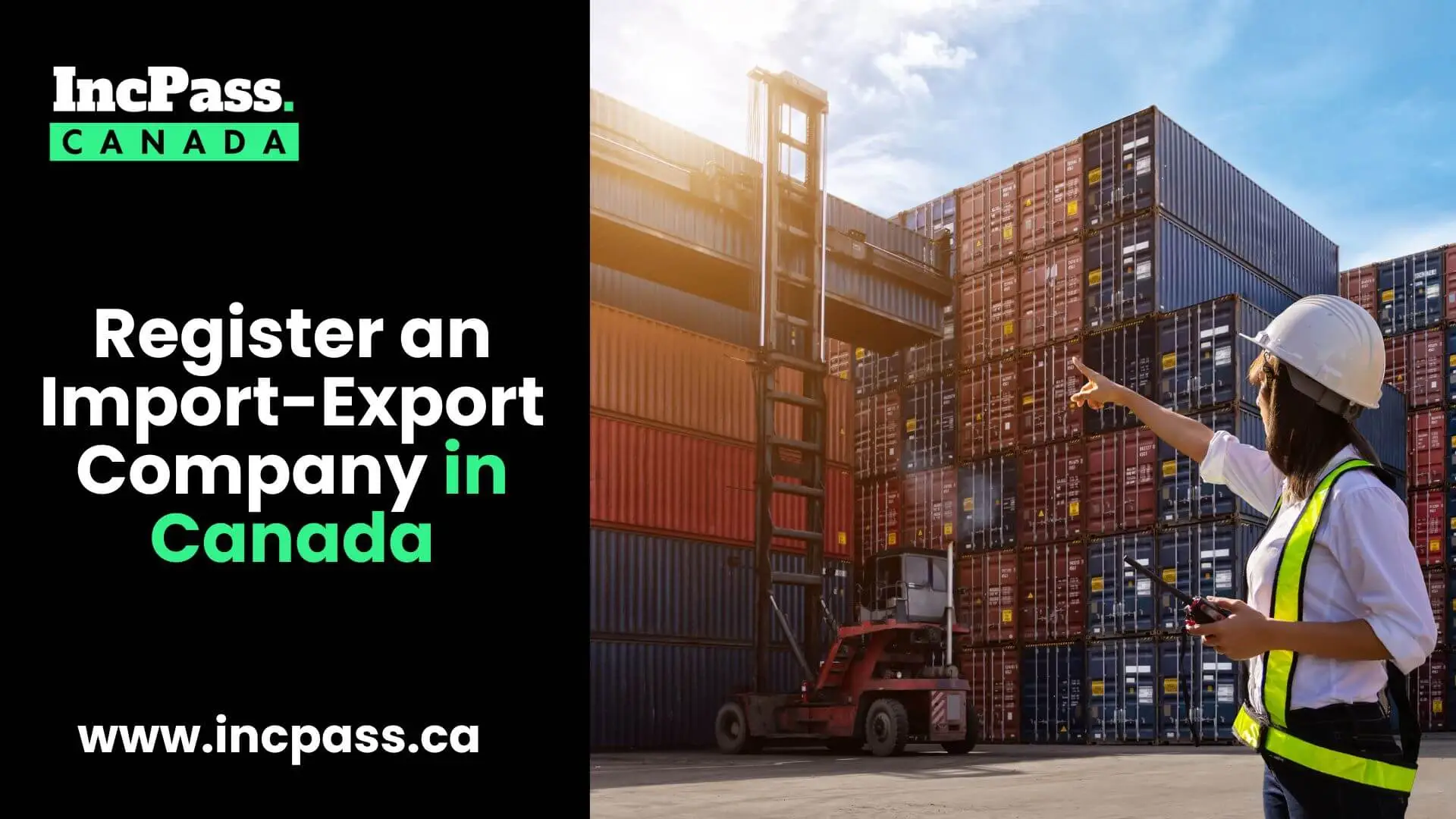Are you considering diving into the dynamic world of import and export business in Canada? Canada boasts a robust import-export industry, with a diverse range of products flowing in and out of the country. Canada trades with nations all over the world for a variety of commodities, including manufactured items, agricultural products, high-tech equipment, and natural resources like lumber, oil, and minerals. For an entrepreneur wishing to expand internationally, setting up a company in Canada is beneficial due to its advantageous position, state-of-the-art infrastructure, and trade agreements. Canada provides a conducive environment for import-export endeavours, regardless of whether you’re looking to pursue international trade prospects or want to grow your current business internationally. However, before you embark on this exciting journey, it’s crucial to understand the ins and outs of registering an import-export company in Canada.
In this comprehensive guide, we’ll walk you through everything you need to know to get started, from the overview of the import-export industry to the legal requirements and financing options available.
Legal Requirements for Registering an Import-Export Company in Canada
Before you can engage in import-export activities in Canada, you’ll need to register your business and comply with certain legal requirements. Here’s what you need to know:
- Select an organizational structure for your business: Taking into account aspects like responsibility, taxation, and ownership structure, choose between conducting business as a corporation, limited liability partnership (LLP), partnership, or sole proprietorship.
- Register your business: Register your import-export company with the appropriate provincial or territorial authorities and obtain necessary permits and licenses, such as a business license and import-export license.
- Acquire a Business Number (BN): Get a Business Number (BN) from the Canada Revenue Agency (CRA) to facilitate transactions with government entities and operate as a unique tax identification number.
Steps to Register a Company for Import-Export Activities in Canada
Select an Organizational Structure
Choose whether to register as a corporation, limited liability company (LLC), partnership, or sole proprietorship.
Select a name for your business
Choose a distinctive and catchy name for your business, making sure it is available for registration and conforms with Canadian naming laws.
Register your business
Complete the necessary registration forms with the relevant provincial or territorial authorities, paying attention to specific requirements based on your chosen business structure.
Acquire Licenses and Permits for Businesses
You could require particular licenses and permits to lawfully conduct your import-export business, depending on your sector and area.
Obtain an Import-Export Business Number
Apply for an import-export number (RMN) from the Canada Revenue Agency (CRA).
Create a bank account for your company
Create a different bank account specifically for your import-export company in order to handle money and make dealings with foreign partners easier.
Documentation Needed to Register an Import-Export Business in Canada
When registering your import-export company in Canada, you’ll need to provide various documents, including:
- Articles of incorporation or partnership agreement
- Business registration forms
- Proof of identity for company directors or partners
- Import-export license application
- Business plan
- Bank statements or financial documents
Estimating Startup Costs for an Import-Export Company in Canada
Depending on the size of the firm, the industry, and the approach taken to enter the market, an import-export business in Canada may have different startup expenses. Nonetheless, typical costs consist of:
- Fees for registration and legal expenses
- Office space or virtual office services
- Import-export license fees
- Marketing and advertising expenses
- Costs associated with inventory and shipping
- Infrastructure and technology expenditures
Financing Options Available to Entrepreneurs in Canada
To finance their import-export businesses, Canadian entrepreneurs have access to a range of funding options, such as:
- Business loans and lines of credit from banks and financial institutions
- Government grants and loans for small businesses and exporters
- Venture capital and angel investor funding
- Crowdfunding platforms
- Trade financing solutions such as letters of credit and export credit insurance
Conclusion
Establishing an import-export company in Canada provides access to opportunities for growth and worldwide exposure. Entrepreneurs can succeed in foreign trade by navigating legal hurdles, obtaining required documentation, assessing initial expenses, and investigating financing sources. By registering your import-export company in Canada with IncPass, you may do so quickly and easily while concentrating on expanding your import-export business and realizing your full potential. Contact Incpass to register your business in Canada today.
FAQs
Do I need an import-export license to start a business in Canada?
Yes, you’ll need to obtain an import-export license from the Canada Border Services Agency (CBSA) to engage in import-export activities.
What are the tax implications of running an import-export business in Canada?
Import-export businesses in Canada are subject to various taxes, including corporate income tax, sales tax (GST/HST), and customs duties.
Which resources are available to assist me in launching a Canadian import-export company?
Various government agencies, industry associations, and business support organizations offer resources, guidance, and training programs for aspiring import-export entrepreneurs.








